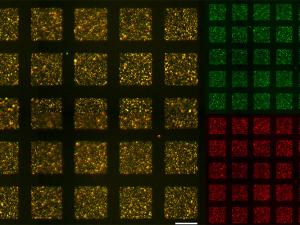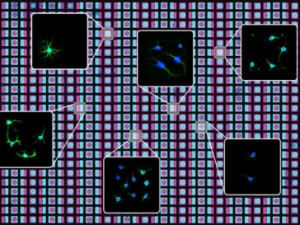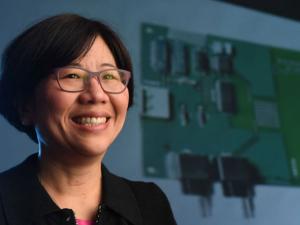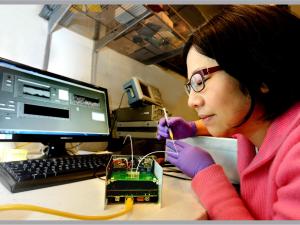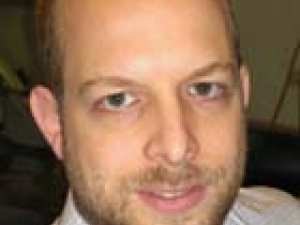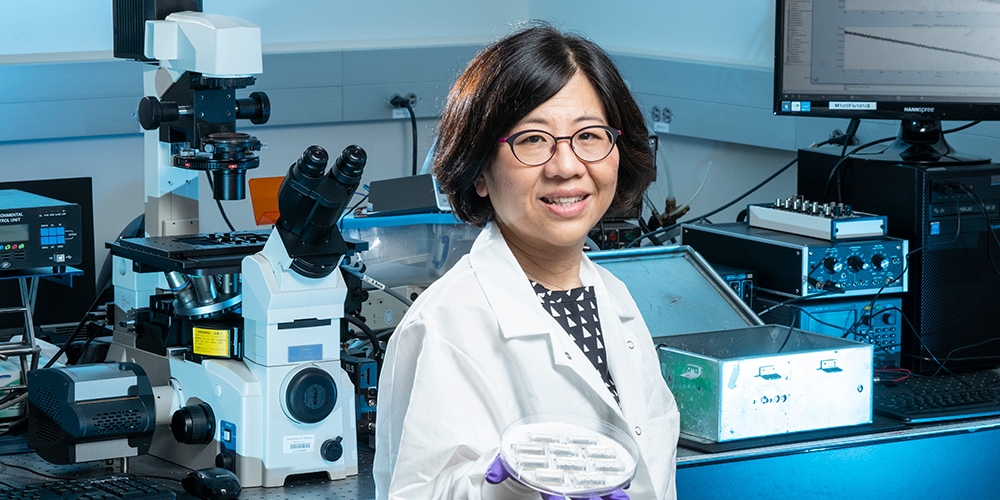

Research Bio
Lydia L. Sohn received her A.B. (Chemistry and Physics, magna cum laude 1988), A. M. (Physics, 1990), and Ph.D. (Physics, 1992) from Harvard University. She was an NSF/NATO postdoctoral fellow at Delft University of Technology (1992-1993) and a postdoctoral fellow at AT&T Bell Laboratories (1993-1995). Sohn was on the Physics faculty at Princeton University (1993-2003) prior to joining the Mechanical Engineering Dept. at UC Berkeley in 2003. In addition to being a Professor of Mechanical Engineering, Sohn is a Core Member of the UCSF-UC Berkeley Joint-Graduate Group in Bioengineering.
Sohn has received numerous awards, including the NSF CAREER, Army Research Office Young Investigator Award, and the DuPont Young Faculty Award. In 2010, Sohn received the prestigious W. M. Keck Foundation Medical Research award to develop a label-free method for screening and sorting rare cells. Sohn was named a Bakar Fellow at UC Berkeley in 2013 for her innovative work in isolating and screening single CTCs from metastatic breast-cancer patients. In 2014, Sohn’s developed label-free method—Node-Pore Sensing (NPS)—was named one of five “Revolutionary Platform Technologies for Advancing Life Sciences Research” in a competition sponsored by 6 major foundations, including the W. M. Keck Foundation, Gordon & Betty Moore Foundation, Kavli Foundation, Burroughs-Wellcome Fund, John Templeton Foundation, and Research Corporation, and Sohn was honored at the White House Office of Science and Technology Policy for this award. At the prestigious 2014 Oakridge Conference, Emerging Clinical & Laboratory Diagnostics: The Portable Lab, the American Association of Clinical Chemistry bestowed NPS with an Outstanding Poster Award for its high clinical value potential.
She previously served on the Executive Committee of the UCSF-UCB Graduate Program in Bioengineering and on the Scientific Advisory Board of the Boulder School for Condensed Matter & Materials Physics. Sohn chaired UC Berkeley’s Institutional Biosafety Committee from 2011-2022 and served as the interim Vice Chair in the Mechanical Engineering Department in 2021. Sohn is a Fellow of the American Institute for Medical and Biological Engineering and is an Associate Member of the Women in Cell Biology Committee of the American Society of Cell Biology. She is a Core Member, UCSF-UC Berkeley Graduate Group in Bioengineering and an Affiliate Member of the UC Berkeley/UCSF Computational Precision Health.
Research Expertise and Interest
micro-nano engineering, bioengineering, biomedical devices biomedical numerical analysis, microfluidics and nanofluidics, bioanalytical separations and disease diagnostics, stem cells, cancer
In the News
Could Liposomes Be the Unsung Heroes of the Pandemic?
New technique ‘prints’ cells to create diverse biological environments
A step toward faster, more accurate breast cancer detection
Researchers talk new diagnostic methods at global tech conference
Four UC Berkeley engineering professors took part in the World Economic Forum’s ninth Annual Meeting of the New Champions, a global conference on innovation, science and technology held last week in Dalian, China. Ab
Pinning down malevolent cancer cells
Lydia Sohn is developing a new technique based on microtechnology to distinguish between different types of circulating tumor cells also known as CTC’s . She hopes this more sensitive approach will help clinicians learn which CTC’s are most prone to lead to metastasis.
Five new Bakar Fellows pursue path to marketplace
Five UC Berkeley scientists eager to take their lab-bench discoveries into the marketplace have been awarded Bakar Fellowships to help them achieve their goals.

